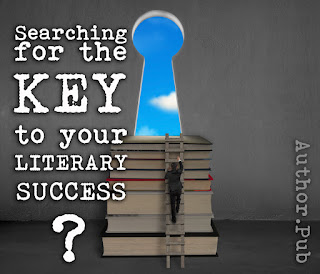Everyone would agree that the
journey to becoming a successful author whether independently or via
representation takes guts and guile. Book publicist and literary agent Dawn
Michelle Hardy has spent the past thirteen years building the platforms and
launching the writing careers of many authors in both fiction and non-fiction. An
energetic publishing professional Dawn has dual careers in the industry. As the
founder of Dream Relations, PR & Literary Consulting Agency she creates and
manages publicity camp aigns for a
variety of authors who are either with a house or self published. As an
Associate Agent with Serendipity Literary Agency she negotiates deals, creates
book concepts and manages the writing careers of her clients.
Here are 3 ways that she
suggest a writer could go about obtaining an agent, note some of these are ways
that she has built her roster at Serendipity Literary Agency.
Strike Up a Smart Social
Media Conversation: Now-a-days most literary agents and agencies have Facebook, Twitter and
even Instagram profiles. Following and engaging literary agents is a good way
to connect virtually. One night I was in a social media mood and I began
tweeting for about an hour about my experience as a new agent and the type of
projects I was looking for. I shared how my background in publicity served
useful. My ideal clients would be members of the media, folks who I knew were
strong writers and had established relationships in their respective
fields. During these tweets an
editor-in-chief from a national lifestyle magazine reached out and said he’d
love to talk to me offline regarding some book ideas he had from his decade as
an entertainment journalist. This
exchange resulted in us meeting and discussing his work. He became my first
client and my first deal was his book, Nicki Minaj: Hip-Hop Moments for Life
by Isoul Harris (Omnibus Press 2012).
If You Write They Will
Come: Most
people who meet me learn in the first 10 minutes of interaction that I love
sports. Basketball, football, baseball,
the Olymp ics, marathons, etc. As a
sports fan I read up on my favorite teams and players. One day I read an
article about a 16-time NBA All-Star and his fall from grace. I was truly heartbroken.
I looked and saw the article was shared over 20k times. I did my research and
contracted the journalist from the Washington Post who wrote the piece. I
introduced myself as an agent with Serendipity who enjoyed his article. We
talked for an hour about the former point guard of the Philadelphia
The Industry Co-Sign: Do you know of anyone who
has already garnered an agent and a book deal? Do you have any friends who work
in the publishing industry, at a book store, for a magazine, etc? First person
referrals are one of the top 3 ways I prefer to get new clients as an agent.
Any one of my clients can refer someone to me and I will gladly take a look at
that person’s content. Why? My clients already have an understanding of what I
am looking for and they fully understand how I work as an agent. If they send
someone my way, they already know the person is a credible pen that they
themselves would co-sign for.
The Reasoning: Do you want to be prosperous or popular from your
book? You must be clear on why you are
really doing this. It will determine the direction you go to promote and
distribute your title. You need to know the answer to why you are taking the
time, resources and energy to pen a book.
The Comp etition:
Take a moment to shop the current books in the market that have been written on
your topic or targeted toward your audience. Is your book unique? How does it
comp are to what’s already been done?
The Audience: No matter how worthy you believe your subject matter
is, every person that reads books will not buy/read yours. Define your audience
so that your message and outreach can be clearly understood. Many
self-published authors make the mistake of spreading themselves too thin and
never really capitalize on their target audience. Make a primary and secondary
list of who your readers are.
The Cost: There are multiple ways to self-publish including
print-on-demand or selling e-books only. Do your due diligence and research the
most cost effective way to introduce your book to the market. A living room
full of boxes of books can be somewhat disturbing if you haven’t fully considered
all the cost involved to move the units.
Dawn Michelle Hardy is the
recipient of the 2010 “Book Publicist of the Year” honor awarded by African
Americans on the Move Book Club. Dawn Michelle has worked with bestselling
authors Teri Woods, Danielle Santiago, Miasha, Kiki Swinson, Niobia Bryant and
a host of others.
Twitter @DreamRelations
Like Us on Facebook: Dream Relations




